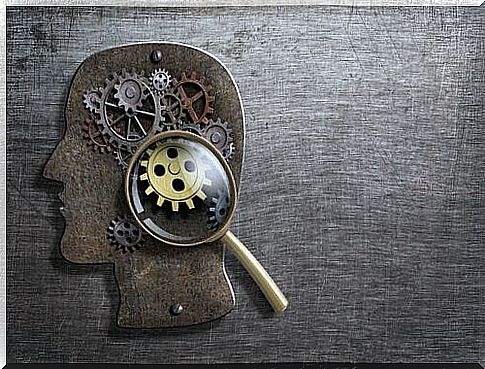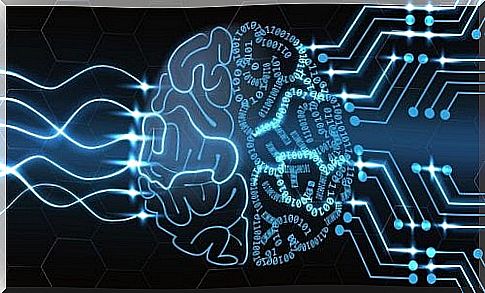Where Is Our Freedom In The Face Of Mechanistic Determinism?

In the face of determinism, are we free to make a decision? Are our lives destined for us? These are questions that many thinkers and philosophers have asked themselves throughout history. Free will and its existence or absence have always been a topical issue over time. And our subjective experience tells us that our agency has a lot to do with mechanistic conditioning.
Determinism is based on the fact that all physical events are conditioned by certain initial conditions. In other words, everything arises from a chain of causes and effects. We can describe many types of determinism: religious, economic, genetic, etc. In this article we will talk about mechanistic determinism.
The concept of mechanistic determinism is based on the idea that humans are like machines. Our brain is a tool that is able to collect a series of inputs, process them and convert them into outputs. Free will is an illusion that arises from the ignorance of processes that take place between input and output.
In the course of the article we will examine two aspects to better understand mechanistic determinism. First we will talk about the principles and reasons that make us think about determinism. Second, we will talk about the homunculus paradox that applies to free will.
An occasion for reflection on mechanistic determinism
The idea of understanding the human mind as a machine arose from the computer metaphor of cognitive psychology. Cognitive psychology says that the brain is an information processor and that all human behavior can be explained by a number of algorithms and mental processes. For this reason, the human brain was compared to a Turing machine.

Although the computer metaphor has become obsolete due to newer, connectionist models, it prompts reflection. The advancement of psychology allows us to understand more cognitive processes and their effects every day and to unravel more of the mysteries of the psyche. We can now explain behaviors that we previously attributed to free will with a series of defined processes.
This makes us seriously consider whether human behavior is just the answer to a chain of causes and effects or whether there is really an I in us that makes the difference? Imagine we were able to know all the variables that affect human behavior. Could we then fully predict each individual’s behavior? The answer to this question seems to be “yes”. In doing so, however, we would be denying the existence of free will, since we could determine the future.
In addition, neuroscientific studies show that our brains make decisions long before we even notice them. These results make us consider the power of consciousness. Nowadays it is difficult to tell whether our minds are deterministic or not. However, modern psychology is based on the assumption that we can predict behavior with a certain level of error. Hence the idea of determinism is very useful for research.
The Homunculus Paradox in Free Will
Now let’s talk about the homunculus paradox . This describes a theoretical incompatibility of psychology with the existence of free will. On many occasions a paradox can help us recognize our mistakes and use new cognitive frameworks or theoretical perspectives.
The homunculus paradox is based on the following contradiction: Psychology tells us that all behaviors or mental processes can be described and explained. The idea of free will suggests that we have the freedom to choose what decisions to make. That would lead us to discover that there has to be “something” that decides in our brain. We call this “something” a homunculus because it is like a human within us who makes decisions.
Now, if the homunculus is what gives us freedom of choice, what gives him that freedom? We could say that in this homunculus there is another homunculus that decides. But if we explain it that way, we get into a paradoxical infinity of homunculi. We would compare the human mind to a matryoshka.

Mechanistic determinism provides a useful paradigm for interpreting psychological reality. Furthermore, the evidence we find, along with the theoretical incompatibilities, seem to lead us in this direction. However, we shouldn’t trust ourselves. It is more likely that the truth is much more complex and that it is not found in any of the extremes, neither determinism nor free will.









